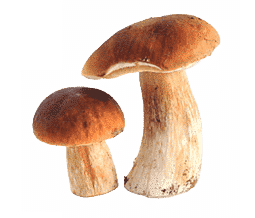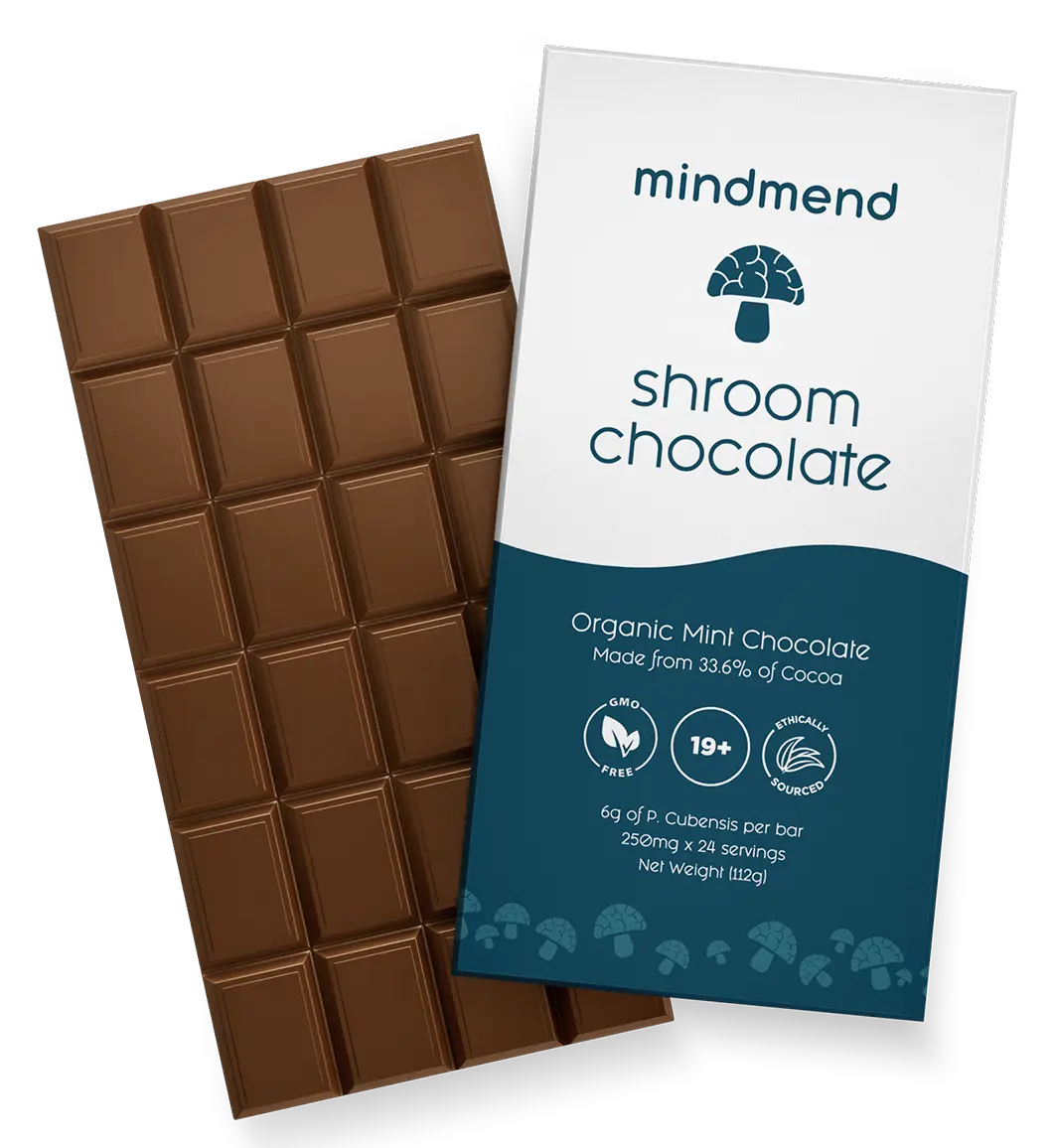
A Complete Guide to Reishi Mushrooms
For centuries, Reishi mushrooms have been revered in Eastern medicine. But what lies beneath the shiny, reddish cap?
Delve into our “A Complete Guide to Reishi Mushrooms” to explore the science behind Reishi, its potential benefits, and how to incorporate it into your wellness routine.
Reishi Mushrooms: Key Takeaways
- Reishi mushrooms show promise for immune system support, stress management, and overall well-being. However, much research is still ongoing to solidify the evidence for these benefits.
- Reishi should be seen as a potential supplement alongside a healthy lifestyle, not a cure-all. When choosing Reishi products, prioritize quality from reputable sources and consult your doctor before use.
- Unlike “magic mushrooms” with psychoactive properties, Reishi is non-psychoactive and offers a different path to potential reishi mushroom health benefits.
Understanding Reishi Mushrooms
Reishi mushrooms, also known as Lingzhi, have captured interest for centuries in Eastern medicine. Reishi belongs to the genus Ganoderma and the Ganodermataceae family.
These are polypore fungi, meaning their Reishi spores and Reishi mycelium are produced through tiny pores on the underside of the cap. Reishi mushrooms grow in these three locations where they can thrive: greenhouses, forest floors, and even simple setups that provide shade and moisture.
Physical Characteristics
Cap: Reishi mushrooms boast a distinctive appearance. Their cap can be shiny or varnished, with a reddish-brown or mahogany hue. The shape varies, but it’s commonly kidney-shaped, flat with a wavy margin.
Stem: The stem is typically short and thick, often attached eccentrically to the cap. Its color ranges from brown to black.
Gills: Unlike many familiar mushrooms, Reishi doesn’t have true gills. The underside displays tiny pores, where spores are released.
Texture: Reishi is known for its woody texture, making it unsuitable for culinary purposes in its raw state.
While not a primary dietary source, Reishi offers a unique nutritional profile:
Fiber: As a fungus, Reishi is naturally high in fiber.
B Vitamins: It contains small amounts of B vitamins, including B2 (riboflavin) and B3 (niacin).
Minerals: Trace amounts of minerals like copper, germanium, and selenium are present.
The potential health benefits of Reishi are attributed to bioactive compounds it produces, including:
Beta-glucans: These complex sugars are believed to stimulate the immune system.
Triterpenoids: These compounds have various potential health benefits, including anti-inflammatory and anti-tumor properties.
Health Benefits of Reishi Mushrooms
Reishi mushrooms have been touted for their health benefits for centuries, but what does modern science say? Let’s explore the potential of Reishi, separating fact from fancy.
Immune System Support
- Enhancing Immune Function:
Reishi may offer some immune support. Studies suggest its beta-glucans can stimulate white blood cell activity, a key component of the immune system. However, the evidence is often preliminary and more research is needed. - Scientific Studies and Evidence:
Current research on Reishi’s immune-boosting properties is mixed. Some studies show promise, while others haven’t found significant benefits. Larger, well-designed clinical trials are necessary to draw definitive conclusions.
Anti-inflammatory and Antioxidant Properties
Mechanisms of Action: Reishi contains beneficial compounds like triterpenoids that exhibit anti-inflammatory and antioxidant properties in test tubes. These properties might offer health benefits like support cardiovascular health, but the mechanisms at play in the human body are still under investigation.
Health Implications: While Reishi’s anti-inflammatory and antioxidant properties are interesting, more research is needed to determine their impact on specific health conditions like chronic inflammation or oxidative stress.
Mental Health and Well-being
Effects on Stress and Anxiety: Some studies suggest Reishi might help manage stress and anxiety. However, the quality of the evidence is limited, and more research is needed to confirm these findings.
Important Distinction:
Unlike “magic mushrooms” (containing psilocybin), Reishi mushrooms are not psychoactive. Reishi’s potential effects on mental health likely stem from its interaction with the body’s stress and inflammatory pathways, not from altering perception.
How to Use Reishi Mushrooms
Reishi mushrooms offer a unique path to potential wellness benefits. But how do you incorporate them into your routine? This guide explores different forms, safe consumption practices, and even recipe ideas!
Forms of Consumption
Reishi’s tough texture makes it unpalatable raw. Luckily, various forms cater to different preferences:
- Teas: Simmering dried Reishi with hot water creates a bitter but potentially beneficial tea.
- Tinctures: These concentrated liquid extracts offer a convenient way to ingest Reishi.
- Capsules: Pre-measured capsules provide a simple and tasteless option.
- Powders: Ground Reishi powder can be added to smoothies or broths for a subtle earthy flavor.
Dosage and Safety
- Recommended Dosages:
There is no universally recommended dosage for Reishi. Doses can vary depending on the form (tincture, capsule, etc.) and the desired effect. It’s crucial to follow the manufacturer’s instructions and consult a healthcare professional for personalized guidance. - Potential Side Effects and Interactions:
Reishi is generally well-tolerated, but some may experience mild side effects like dizziness, stomach upset, or dry mouth. It can also interact with certain medications, so discussing it with your doctor before use is essential.
Preparation Methods
Here’s a quick guide to some popular Reishi preparation methods:
- Reishi Tea: Steep 1-2 teaspoons of dried Reishi in hot water for 10-15 minutes. Strain and enjoy plain or with a sweetener like honey.
- Tincture: Follow the dropper instructions provided on the product label. Tinctures can be taken directly or diluted in water or juice.
- Capsules: Take the recommended number of capsules with water, as directed on the bottle.
- Powder: Add a teaspoon of Reishi powder to your morning smoothie or incorporate it into soups and broths for an earthy nutritional boost.
Remember, consistency is key! While Reishi may not be a cure-all, incorporating it into your routine as part of a healthy lifestyle might offer some benefits. As always, consult your doctor before starting any new reishi supplements regimen.
Reishi Mushrooms vs. Magic Mushrooms
While both Reishi and “magic” mushrooms share a fungal kingdom connection, their paths diverge dramatically. Let’s delve into their key differences and explore their potential uses.
Differences in Species and Effects
Reishi (Ganoderma lucidum): Reishi is a polypore fungus known for its reddish-brown cap and adaptogenic properties. Adaptogens are believed to help the body adapt to stress. Reishi is not psychoactive.
Magic Mushrooms (Psilocybe spp.): These encompass numerous psychoactive Psilocybe species, known for their characteristic caps and stems. The main psychoactive compound is psilocybin, which alters perception and mood.
Non-psychoactive vs. Psychoactive Properties
- Reishi: This mushroom focuses on potential health benefits. Studies suggest it might modulate the immune system and offer anti-inflammatory properties.
- Magic Mushroom: This medicinal mushroom is known for its mind-altering effects, inducing hallucinations and altered states of consciousness.
Legal Status and Cultural Perception
- Reishi: Generally legal worldwide, Reishi is valued in traditional Chinese medicine for its purported health benefits.
- Magic Mushrooms: Legality varies widely. In most countries, they are classified as illegal drugs due to their psychoactive properties. However, some countries are exploring their therapeutic potential in controlled settings for mental health conditions.
Potential Therapeutic Uses
- Reishi: Traditional uses of Reishi center around promoting longevity and overall well-being. Modern research investigates its potential role in supporting the immune system and managing stress.
- Magic Mushrooms: Emerging research explores the therapeutic use of psilocybin in treating conditions like depression, anxiety, and addiction. These studies involve controlled psychedelic experiences under medical supervision.
Buying and Storing Reishi Mushrooms
Taking Reishi mushrooms have gained traction for their potential health benefits. But before you embark on your Reishi journey, understanding where to find high-quality options and how to store them properly is crucial.
Where to Buy
Finding reputable sources for your Reishi is key. Here are some options to consider:
Online retailers: Several online vendors specialize in medicinal mushrooms. Look for companies with a strong reputation for quality control and organic practices.
Health food stores: Many health food stores carry Reishi products like capsules, tinctures, and powders. Check the labels for information on the source and processing methods.
Traditional Chinese medicine (TCM) shops: If you have access to TCM shops, they often carry Reishi in various forms. Be sure to inquire about the product’s origin and quality.
Trusted Suppliers and Quality Considerations
Look for organic certification: Opt for organic Reishi to minimize exposure to pesticides and other contaminants.
Source matters: Inquire about the origin of the Reishi. Regions with strong regulations and sustainable harvesting practices are preferred.
Third-party testing: Reputable vendors may offer third-party lab test results to ensure product purity and potency.
Storage Tips
Once you’ve acquired your Reishi, proper storage is vital to preserve its beneficial properties:
Keep it cool, dark, and dry: Light, heat, and moisture can degrade Reishi’s potency. Store it in an airtight container in a cool, dark cupboard or pantry.
Consider glass jars: Glass jars with tight-fitting lids offer excellent protection from light and moisture.
Desiccants for extra protection: Adding a desiccant pack to the container can further absorb any residual moisture and extend shelf life.
Proper Storage for Different Forms
Dried Reishi: Dried Reishi mushrooms can last for up to a year under proper storage conditions.
Tinctures and Liquid Extracts: Store tinctures and liquid extracts according to the manufacturer’s recommendations. Typically, a cool, dark place is ideal, and some might require refrigeration after opening.
Capsules and Powders: Store capsules and powders in their original containers or transfer them to airtight glass jars.
By following these tips, you can ensure your Reishi maintains its quality and delivers the potential medicinal benefits you seek. Remember, consulting a healthcare professional before starting any new supplement regimen is always advisable.
Final Thoughts
Consuming Reishi mushrooms have captivated attention for centuries, offering a glimpse into the world of functional fungi. From its historical significance in Eastern medicine to its potential role in modern wellness, Reishi presents a unique story. While the research is ongoing, Reishi’s adaptogenic medicinal properties and potential immune-supporting benefits hold promise.
However, when it comes to mental and emotional well-being, there’s a growing interest in exploring new frontiers. At Mindmend, we understand that mental health is a vital part of overall health. That’s why we offer a carefully curated collection of products formulated to address various mental health needs.
Check out our collection now and discover how Mindmend can empower your journey towards mental well-being!





